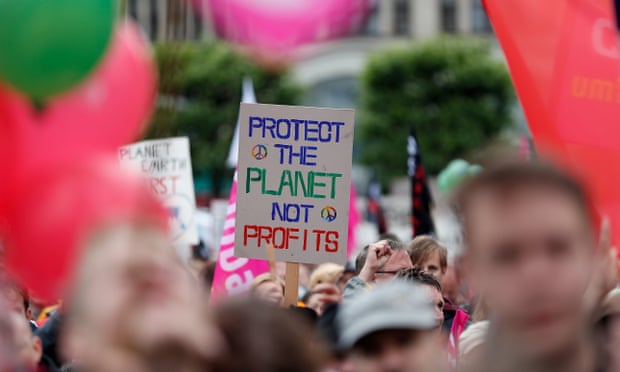Climate change: Overpopulation or overconsumption? Maybe both?
While recently the problem of pollution generated by the industries is finally being addressed, the media and several climate and nature experts especially in Europe, the US and Canada often bring our attention on overpopulation. One example is the influential natural historian and presenter Sir David Attenborough, who warned about overpopulation on numerous occasions such as this one:
I like the fact that Attenborough stresses the importance of gender equality and women's rights in order to achieve more population control. I also liked his criticism of the idea of sustainable growth, which he sees as an oxymoron and something that is promoted by economists or those who are simply out of their minds. We should probably be talking more about the unsustainability of any growth in the present context, especially economic growth and overconsumption, which are pushing the planet towards the climate disaster more than overpopulation, as is explained in the below video shared on the Deutsche Welle Planet A youtube channel:
Please don't get me wrong: Overpopulation is undoubtedly a serious problem which needs to be tackled as part of our struggle to minimise the damage caused by climate change. It inevitably leads to the occupation of more and more land for housing, agriculture, transport and other purposes. There is also no doubt that the excess of human population causes the loss of habitat for other species and an environmental crisis due to the increased extraction of resources and the amount of waste generated.
However, the biggest pollutants today are the highly-industrialised countries with low demographic growth, while those countries with significant population growth are typically less-industrialised, mostly located in Africa and South Asia, and produce much less pollution. Focusing the climate change debate on overpopulation seems to me a deliberate diversion from the responsibility of the Global North. Rich European and North American countries routinely dump their waste in the Global South and now they also try to dump the blame for the climate disaster on the less "developed" Global South.
Let's briefly analyse some of the data provided in the Deutsche Welle documentary to have a clear picture of why this is terribly unfair. The so-called Earth Overshoot Day, or the day in which humanity uses up the planet's resources per year, shows something completely startling: If divided by country, the United States uses its part of the annual resources by mid-March, while India, with a population four times higher, does not use its share until Spring of the following year. As the quoted researchers claim, an average American uses sixteen times more resources than an average Indian. The comparison between the annual carbon footprint of an average Indian family of four (8 tonnes) with that of an average American family of four (70 tonnes) is also very revealing. Therefore, instead of pointing fingers at the poorer countries only diverts our attention from what the real problem is: overconsumption!
I am not advocating for a complete cease of all economic and industrial activities, however the decrease of those activities combined with strict limits of emissions is absolutely necessary. The planet's finite resources cannot support continuous growth, whether a population growth or economic growth. Therefore I am convinced that the ideas of the degrowth movement are essential in the ongoing struggle to reduce the effects of climate change. However, those ideas are in direct conflict with the basic precepts of neoliberal capitalism, which should be sidelined and eventually made redundant if there is to be any hope of meeting the goals set at the current Climate Summit held in Glasgow.
Giving priority to the economic benefits of the world's rich elites over the well-being of humanity and other species will have disastrous effects. Let's not forget that just 100 of the world's biggest corporations are responsible for 71% of the global greenhouse gas emissions! Most of them are fossil-fuel companies like ExxonMobil, Shell, BP or Chevron. As a citizen of a country with a democratically elected government in Europe I expect our politicians to act and introduce strict limits on such companies, as well as withdraw the funding of the fossil-fuel industry. I realise that this industry constitutes one of the world's most powerful lobbies and any limits imposed on it will inevitably lead to conflict, however the measures needed to combat the effects of climate change must come first.
There are numerous organisations and movements such as Extinction Rebellion or Wretched of the Earth who are already raising awareness of the importance of this struggle, however their success is very limited. As far as I can see, most of us are still blissfully unaware of what might happen to us quite soon if our politicians don't take the threat seriously enough.










Comentarios
Publicar un comentario